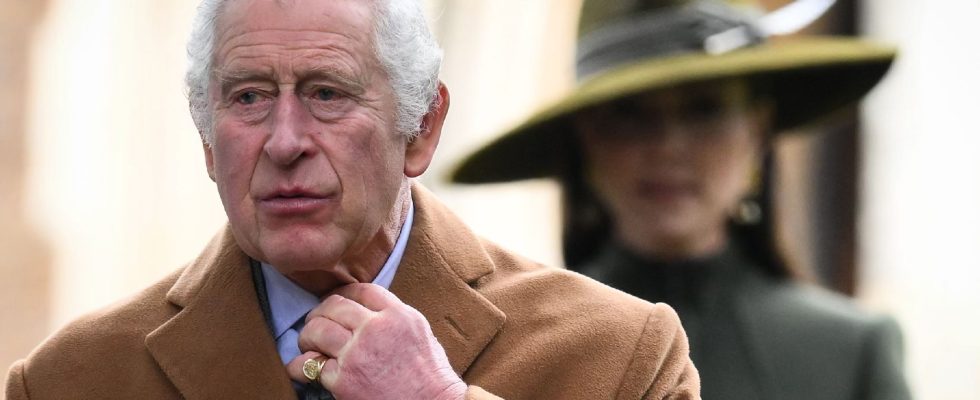The choice of France for the first State visit of the reign of Charles III owes nothing to chance or to Downing Street. It is a personal choice of the new sovereign, as is that of going to Germany afterwards, on an official trip. Charles intends to impose his will and make his voice heard, so that there will be no need to scrutinize the color of his outfits or his hats – as was the case with his mother Elizabeth II – to decipher any political message. subliminal. Let it be said: with him, the British monarchy will be more cash. And too bad if that offends some politicians across the Channel, long accustomed to the royal motus and tight mouth. In a France in the midst of a social storm over pensions, the monarch’s trip to Paris should mark the start of a “committed” reign.
Since the day after his mother’s death, six months ago, Charles has left his mark. The change of era was then felt immediately when he made the decision to let the television cameras witness live, and for the first time in the history of the British monarchy, the various ceremonies marking the transfer of royal power. Surprising clash between the archaism of a thousand-year-old institution and the modernity of live communication. The interest of the world public, fascinated by these rites and this pomp from another time, reinforces the legitimacy of the institution. The same week, about to cross the gates of Buckingham Palace for the first time as sovereign, the king ordered his driver to stop his car and improvised a walkabout. A spontaneity unimaginable at the time of Elizabeth II.
Interventionist, activist and agitator
Touched by the marks of sympathy of Emmanuel Macron, Charles confirms from the day of his mother’s funeral that he will go to Paris in the spring. A way for him to stand out from his Prime Minister at the time, Liz Truss, whose anti-French manners and vituperations he does not like. A few weeks later, when his second Prime Minister, Rishi Sunak, announced that he would not represent his country at the COP 27 climate talks in Egypt, the king made his disappointment known. He would have gone there himself, he says. And suggests that he could organize, for the occasion, an event on the same theme at Buckingham Palace. The message is received five out of five in Downing Street: Rishi Sunak reconsiders his decision and finally goes to Sharm el-Sheikh for the Climate conference organized under the aegis of the United Nations.
Interventionist, King Charles? Yes, but also activist and agitator. We remember the thirty letters sent to members of the Blair government between 2004 and 2005 and classified confidential under the code name “memos of the black spider”. A legal action then forces the government to make them public. In his missives to Tony Blair and his ministers, Charles, then Prince of Wales, campaigned on all subjects, pleading for better equipment for British soldiers sent to Iraq, or even the introduction of medicinal plants to the National Health Service (NHS ), the public health service.
For Catherine Mayer, author of a biography on Prince Charles in 2015, now updated and titled Charles, The Heart of a King, “It is obvious that the son is not like the mother. Elizabeth ascended the throne at the age of 25; no one could yet know her views, her opinions. In the end, no one ever knew them.” Charles is quite the opposite. He spent his life making them known, if only to give some relief to his status as a future king. “He built a charitable empire with his foundation, delivered hours of speeches on his favorite topics. He even wrote a book, or rather a manifesto.” Elizabeth II reigned for so long that her way of ruling the monarchy seems to be the only possible one. But Charles has other plans.
In 2010, the future king published a book entitled Harmony: A New Way of Looking at Our World (Harmony: A New Way to See Our World), little-known work in which he exposes his convictions that some call fads. From his love for Islamic art to his fight for the preservation of endangered species, such as red squirrels and hedgehogs; from his concerns about contemporary architecture to his interest in alternative and homeopathic medicine, and of course, the need to fight against climate change, Charles III says everything that is close to his heart. It must be said that on ecological issues, he has always been one step ahead. Long mocked for his environmental positions, the facts now prove him right. Will he be listened to on the rest of his positions? He hopes so.
Intellectual king, thinker monarch, self-taught sovereign who learned through his travels and his contacts with civil society, Charles III also intended to be a diplomatic king. The trip to Paris offered him the opportunity to prove it to his subjects, but also to the whole world.
